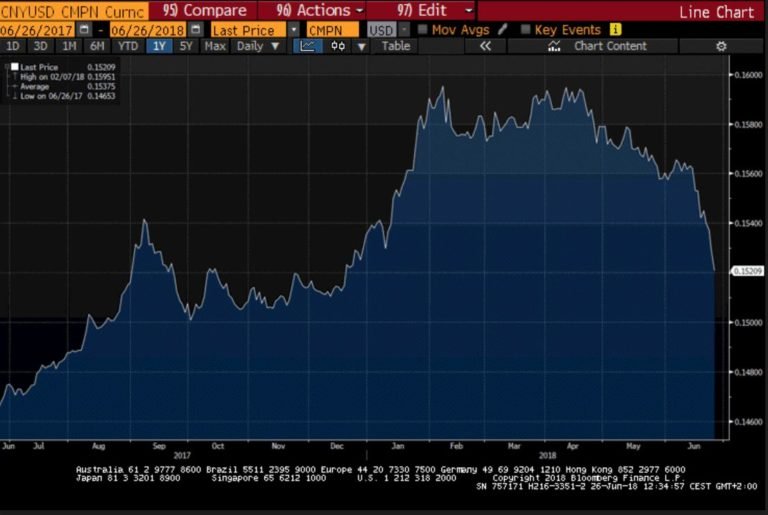The battle between Beijing and President Trump is well chronicled. Tariffs are on everyone's mind as China and the US play a tit-for-tat game. The President started the battle by levying tariffs on certain Chinese products only to be met with with tariffs out of Beijing. Back and forth, each round adding more to the pile.
While this is capturing the headlines, what is overlooked is China's devaluation of the currency. This is a move in response to offset the impact of the tariffs on the economy.
The issue with this move is that tariffs only affect a portion of the economy while currency devaluation impacts everyone. This is something that could really harm and already wavering economy. We are already seeing diminishing purchasing power and loan repayment capacity is falling.
One major problem is that margins fall but expenses do not match up. The devalution of the Yuan will cut into the profits yet expenses like energy, working capital, imports, and other fixed costs account for 70% of expenditures. Instead of falling, many of these are rising.
The average household is further burdened by the fact that inflation appears to be rising at a pace higher than the government acknowledges. Inflation eats into spending ability if wages are not keeping pace. At present, it is estimated that the Chinese are underestimating their inflation rate by about 2%.
Control of credit can stiffle economic expansion but turning a blind eye can be destructive also.
There are numerous reasons why we should worry about China’s decision to end its control of credit growth. The government has been encouraging riskier lending by cutting deposit reserve rates and pumping liquidity into the system.
The silent bailout, which has led to the PBOC injecting hundreds of billions of dollars into the financial system, is not reducing the excess risk-taking, it is encouraging it.
This is creating a housing bubble that is larger than what the United States experienced a decade ago. The "easy credit" path which encourages excessive risk taking is pretty clear. These things tend not to end well.
China's decision to devalue the Yuan is not making it more competitive. Instead, it is only eating into household's spending ability while also creating a credit fueled bubble. Many like to point to the fact that a great deal of the money supply is gold backed. This is not quite accurate since gold accounts for only .25% of all the money supply.
While everyone has their eyes on the tariff fight between Trump and the Chinese government, many are missing the currency issue. This is one that could blow up in Beijing's face.
To read more about this, click on link:
https://www.dlacalle.com/en/china-why-we-should-be-even-more-worried-after-the-devaluation/

